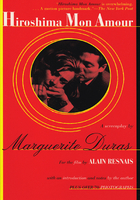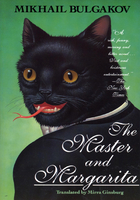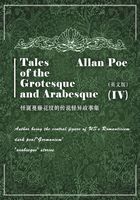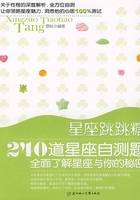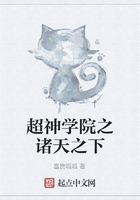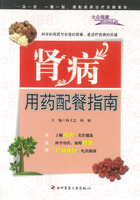Part 2 Scenes
The appearance presented by the streets of London an hour before sunrise, on a summer's morning, is most striking even to the few whose unfortunate pursuits of pleasure, or scarcely less unfortunate pursuits of business, cause them to be well acquainted with the scene. ?There is an air of cold, solitary desolation about the noiseless streets which we are accustomed to see thronged at other times by a busy, eager crowd, and over the quiet, closely-shut buildings, which throughout the day are swarming with life and bustle, that is very impressive.
The last drunken man, who shall find his way home before sunlight, has just staggered heavily along, roaring out the burden of the drinking song of the previous night: the last houseless vagrant whom penury and police have left in the streets, has coiled up his chilly limbs in some paved comer, to dream of food and warmth. ?The drunken, the dissipated, and the wretched have disappeared; the more sober and orderly part of the population have not yet awakened to the labours of the day, and the stillness of death is over the streets; its very hue seems to be imparted to them, cold and lifeless as they look in the grey, sombre light of daybreak. ?The coach-stands in the larger thoroughfares are deserted: the night-houses are closed; and the chosen promenades of profligate misery are empty.
An occasional policeman may alone be seen at the street corners, listlessly gazing on the deserted prospect before him; and now and then a rakish-looking cat runs stealthily across the road and descends his own area with as much caution and slyness-bounding first on the water-butt, then on the dust-hole, and then alighting on the flag-stones-as if he were conscious that his character depended on his gallantry of the preceding night escaping public observation. ?A partially opened bedroom-window here and there, bespeaks the heat of the weather, and the uneasy slumbers of its occupant; and the dim scanty flicker of the rushlight, through the window-blind, denotes the chamber of watching or sickness. ?With these few exceptions, the streets present no signs of life, nor the houses of habitation.
An hour wears away; the spires of the churches and roofs of the principal buildings are faintly tinged with the light of the rising sun; and the streets, by almost imperceptible degrees, begin to resume their bustle and animation. ?Market-carts roll slowly along: the sleepy waggoner impatiently urging on his tired horses, or vainly endeavouring to awaken the boy, who, luxuriously stretched on the top of the fruit-baskets, forgets, in happy oblivion, his long-cherished curiosity to behold the wonders of London.
Rough, sleepy-looking animals of strange appearance, something between ostlers and hackney-coachmen, begin to take down the shutters of early public-houses; and little deal tables, with the ordinary preparations for a street breakfast, make their appearance at the customary stations. ?Numbers of men and women (principally the latter), carrying upon their heads heavy baskets of fruit, toil down the park side of Piccadilly, on their way to Covent-garden, and, following each other in rapid succession, form a long straggling line from thence to the turn of the road at Knightsbridge.
Here and there, a bricklayer's labourer, with the day's dinner tied up in a handkerchief, walks briskly to his work, and occasionally a little knot of three or four schoolboys on a stolen bathing expedition rattle merrily over the pavement, their boisterous mirth contrasting forcibly with the demeanour of the little sweep, who, having knocked and rung till his arm aches, and being interdicted by a merciful legislature from endangering his lungs by calling out, sits patiently down on the door-step, until the housemaid may happen to awake.
Covent-garden market, and the avenues leading to it, are thronged with carts of all sorts, sizes, and descriptions, from the heavy lumbering waggon, with its four stout horses, to the jingling costermonger's cart, with its consumptive donkey. ?The pavement is already strewed with decayed cabbage-leaves, broken hay-bands, and all the indescribable litter of a vegetable market; men are shouting, carts backing, horses neighing, boys fighting, basket-women talking, piemen expatiating on the excellence of their pastry, and donkeys braying. ?These and a hundred other sounds form a compound discordant enough to a Londoner's ears, and remarkably disagreeable to those of country gentlemen who are sleeping at the Hummums for the first time.
Another hour passes away, and the day begins in good earnest. ?The servant of all work, who, under the plea of sleeping very soundly, has utterly disregarded 'Missis's' ringing for half an hour previously, is warned by Master (whom Missis has sent up in his drapery to the landing-place for that purpose), that it's half-past six, whereupon she awakes all of a sudden, with well-feigned astonishment, and goes down-stairs very sulkily, wishing, while she strikes a light, that the principle of spontaneous combustion would extend itself to coals and kitchen range. ?When the fire is lighted, she opens the street-door to take in the milk, when, by the most singular coincidence in the world, she discovers that the servant next door has just taken in her milk too, and that Mr. Todd's young man over the way, is, by an equally extraordinary chance, taking down his master's shutters. ?The inevitable consequence is, that she just steps, milk-jug in hand, as far as next door, just to say 'good morning' to Betsy Clark, and that Mr. Todd's young man just steps over the way to say 'good morning' to both of 'em; and as the aforesaid Mr. Todd's young man is almost as good-looking and fascinating as the baker himself, the conversation quickly becomes very interesting, and probably would become more so, if Betsy Clark's Missis, who always will be a-followin' her about, didn't give an angry tap at her bedroom window, on which Mr. Todd's young man tries to whistle coolly, as he goes back to his shop much faster than he came from it; and the two girls run back to their respective places, and shut their street-doors with surprising softness, each of them poking their heads out of the front parlour window, a minute afterwards, however, ostensibly with the view of looking at the mail which just then passes by, but really for the purpose of catching another glimpse of Mr. Todd's young man, who being fond of mails, but more of females, takes a short look at the mails, and a long look at the girls, much to the satisfaction of all parties concerned.
The mail itself goes on to the coach-office in due course, and the passengers who are going out by the early coach, stare with astonishment at the passengers who are coming in by the early coach, who look blue and dismal, and are evidently under the influence of that odd feeling produced by travelling, which makes the events of yesterday morning seem as if they had happened at least six months ago, and induces people to wonder with considerable gravity whether the friends and relations they took leave of a fortnight before, have altered much since they have left them. ?The coach-office is all alive, and the coaches which are just going out, are surrounded by the usual crowd of Jews and nondescripts, who seem to consider, Heaven knows why, that it is quite impossible any man can mount a coach without requiring at least sixpenny-worth of oranges, a penknife, a pocket-book, a last year's annual, a pencil-case, a piece of sponge, and a small series of caricatures.
Half an hour more, and the sun darts his bright rays cheerfully down the still half-empty streets, and shines with sufficient force to rouse the dismal laziness of the apprentice, who pauses every other minute from his task of sweeping out the shop and watering the pavement in front of it, to tell another apprentice similarly employed, how hot it will be to-day, or to stand with his right hand shading his eyes, and his left resting on the broom, gazing at the 'Wonder,' or the 'Tally-ho,' or the 'Nimrod,' or some other fast coach, till it is out of sight, when he re-enters the shop, envying the passengers on the outside of the fast coach, and thinking of the old red brick house 'down in the country,' where he went to school: the miseries of the milk and water, and thick bread and scrapings, fading into nothing before the pleasant recollection of the green field the boys used to play in, and the green pond he was caned for presuming to fall into, and other schoolboy associations.
Cabs, with trunks and band-boxes between the drivers' legs and outside the apron, rattle briskly up and down the streets on their way to the coach-offices or steam-packet wharfs; and the cab-drivers and hackney-coachmen who are on the stand polish up the ornamental part of their dingy vehicles-the former wondering how people can prefer 'them wild beast cariwans of homnibuses, to a riglar cab with a fast trotter,' and the latter admiring how people can trust their necks into one of 'them crazy cabs, when they can have a 'spectable 'ackney cotche with a pair of 'orses as von't run away with no vun;' a consolation unquestionably founded on fact, seeing that a hackney-coach horse never was known to run at all, 'except,' as the smart cabman in front of the rank observes, 'except one, and he run back'ards.'
The shops are now completely opened, and apprentices and shopmen are busily engaged in cleaning and decking the windows for the day. ?The bakers' shops in town are filled with servants and children waiting for the drawing of the first batch of rolls-an operation which was performed a full hour ago in the suburbs: for the early clerk population of Somers and Camden towns, Islington, and Pentonville, are fast pouring into the city, or directing their steps towards Chancery-lane and the Inns of Court. ?Middle-aged men, whose salaries have by no means increased in the same proportion as their families, plod steadily along, apparently with no object in view but the counting-house; knowing by sight almost everybody they meet or overtake, for they have seen them every morning (Sunday excepted) during the last twenty years, but speaking to no one. ?If they do happen to overtake a personal acquaintance, they just exchange a hurried salutation, and keep walking on either by his side, or in front of him, as his rate of walking may chance to be. ?As to stopping to shake hands, or to take the friend's arm, they seem to think that as it is not included in their salary, they have no right to do it. ?Small office lads in large hats, who are made men before they are boys, hurry along in pairs, with their first coat carefully brushed, and the white trousers of last Sunday plentifully besmeared with dust and ink. ?It evidently requires a considerable mental struggle to avoid investing part of the day's dinner-money in the purchase of the stale tarts so temptingly exposed in dusty tins at the pastry-cooks' doors; but a consciousness of their own importance and the receipt of seven shillings a-week, with the prospect of an early rise to eight, comes to their aid, and they accordingly put their hats a little more on one side, and look under the bonnets of all the milliners' and stay-makers' apprentices they meet-poor girls!-the hardest worked, the worst paid, and too often, the worst used class of the community.
Eleven o'clock, and a new set of people fill the streets. ?The goods in the shop-windows are invitingly arranged; the shopmen in their white neckerchiefs and spruce coats, look as it they couldn't clean a window if their lives depended on it; the carts have disappeared from Covent-garden; the waggoners have returned, and the costermongers repaired to their ordinary 'beats' in the suburbs; clerks are at their offices, and gigs, cabs, omnibuses, and saddle-horses, are conveying their masters to the same destination. ?The streets are thronged with a vast concourse of people, gay and shabby, rich and poor, idle and industrious; and we come to the heat, bustle, and activity of NOON.


